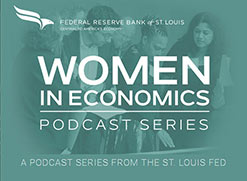What Can You Do with an Economics Degree?
Often people imagine that an economics degree is all numbers and stats, and that it usually leads to a Ph.D. and then to jobs like becoming a research economist or professor. However, that is just the tip of the iceberg when it comes to economics. Graduates with economics degrees certainly do go on to become economists and professors. But they also work on Wall Street, lead companies and spearhead work on important social issues.
Have you ever wondered how you could use an economics degree?
Economics coursework is rigorous, but the degree can be worth all the studying. The typical starting salary for those who majored in applied economics and management was $58,900, according to the American Economic Association’s website, which cited data from a 2019 Payscale.com report. This suggests that economics majors have a bright future ahead of them, but what kinds of careers can they pursue with their degrees?
Opportunities for economics majors may surprise you. We’ll take a look at some of the things to bear in mind:
- Misconceptions about majoring in economics
- Skills employers look for
- Types of jobs economics majors can apply for
- Pursuing post-graduate degrees
Misconceptions about Majoring in Economics
One misconception I had as a freshman entering college is that economics majors must pursue a master’s degree, or even a doctorate, to compete in the job market. However, this is not the case. The reality is that economics majors have a myriad of career choices. Anne Winkler, a professor of economics at the University of Missouri-St. Louis, talked about the opportunities at the 2021 Women in Economics Symposium hosted by the St. Louis Fed.
“Economics teaches us an analytical way of thinking, and it can be applied to a huge range of topics,” said Winkler, who is also a research fellow at the Institute of Labor Economics. “It provides a versatile, transferrable thinking and problem-solving set of skills, and it’s a skill set that is valued by employers.”
Anne Winkler
Skills Employers Look for
Economics training offers students a wide array of skills that are sought after in the job market. Employers often hire economics majors due to their analytical and quantitative skills, including how to understand and use data.
Winkler described the job market for economics majors.
“The key message that I would want students to know today and in general is that econ students with B.A.s and B.S. degrees are getting really good jobs,” she said.
Types of Jobs Economics Majors Can Apply for
At the symposium, participants could attend a breakout session, “What Can I Do with a Bachelor’s or Master’s Degree in Economics?” where panelists discussed opportunities for economics majors.
Economics majors can pursue many different job opportunities, and some may surprise you. The analytical thinking that economics teaches can be applied in a variety of different fields, such as health care, environmental sciences, behavioral policy and even the sporting industry, as Winkler noted. The truth is that economics students are finding excellent jobs.
Real Life Examples of Economics Career Choices
Guests on our Women in Economics Podcast Series have talked about their career paths. Five unique examples are featured in the episodes listed below.
Episode 36: Rhonda Vonshay Sharpe discusses her work as the founder and president of the Women’s Institute for Science, Equity and Race (WISER).
Episode 35: Kathleen Navin discusses her work in economic forecasting at IHS Markit.
Episode 24: Anna Opoku-Agyeman and Fanta Traore discuss why they co-founded the Sadie Collective, which aims to cultivate a community for Black women in economics, finance and other quantitatively demanding fields.
Episode 27: Zanny Minton Beddoes discusses her role as editor-in-chief of The Economist.
Episode 18: Kathleen Hays discusses her work as the global, economics and policy editor for Bloomberg Television and Radio.

During the same panel with Winkler, St. Louis Fed recruiter Katy Kickham discussed some examples of possible fields for economics students, including:
- actuarial science
- financial analysis
- accounting
- banking
- insurance
- data analytics
- marketing
- journalism
- law
- politics
The job opportunities for economics majors do not end here.
There are many opportunities for people who have economics degrees here at the St. Louis Fed, such as bank examiner and various analyst positions, as Kickham discussed.
Opportunities as a research associate also are available at institutions from think tanks to government agencies for those interested in economic research.
Additionally, according to a January 2014 Forbes article and data from the National Association for Colleges and Employers, 61.5% of economics majors received at least one job offer before graduating in the spring of 2013.
For those who go on to become an economist, with typical entry-level education of a master’s degree, the job outlook is excellent. The projected growth in employment from 2019-2029 for economists was 14%, according to the Bureau of Labor Statistics. This compares to an average growth rate for all occupations of only 4%.
Pursuing Post-Graduate Degrees
A bachelor’s or master’s in economics is also great preparation for those interested in pursuing law school, public policy programs and, of course, a doctorate in economics, Winkler said.
In fact, among 2015-2016 law school applicants, those who were economics majors had an average score of 158.8 on the Law School Admission Test, or LSAT, according to the American Economic Association. To put that into perspective, the highest possible LSAT score is 180, and the average is around 151.
Similarly, for the graduate records examination, or GRE, test takers intending to pursue economics graduate degrees perform better than average, according to PrepScholar.
“It [economics] is an amazing field,” said Mary C. Daly, president and CEO of the Federal Reserve Bank of San Francisco, in the first episode of the Women in Economics Podcast Series. “I have been passionate about this since the day I learned it. It’s a toolkit and a way to think about the world that allows me to contribute in ways I never thought possible. So that excitement I have for my profession, I want everybody to be part of this profession.”
This blog explains everyday economics and the Fed, while also spotlighting St. Louis Fed people and programs. Views expressed are not necessarily those of the St. Louis Fed or Federal Reserve System.
Email Us


